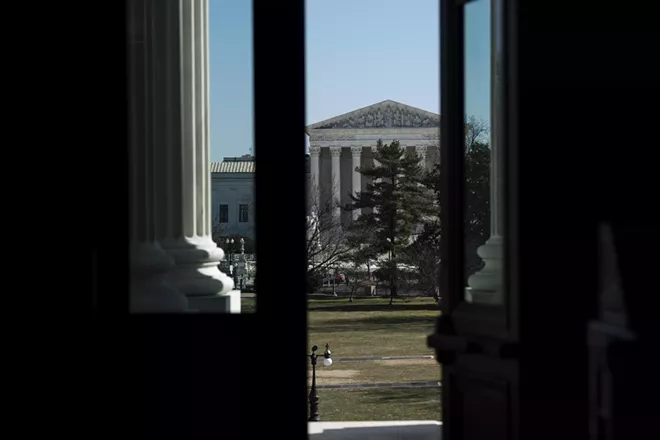
New York Times News Service
WASHINGTON — The Supreme Court on Thursday ruled against the challengers opposed to partisan gerrymandering, the practice in which the party that controls the state legislature draws voting maps to help elect its candidates.
The vote in two cases was 5-4, with the court’s more conservative members in the majority. The court appeared to close the door on such claims.
The drafters of the Constitution, Chief Justice John G. Roberts Jr. wrote for the majority, understood that politics would play a role in drawing election districts when they gave the task to state legislatures. Judges, the chief justice said, are not entitled to second-guess lawmakers’ judgments.
“We conclude that partisan gerrymandering claims present political questions beyond the reach of the federal courts,” the chief justice wrote.
One case, from North Carolina, concerned a plan drawn by Republican state lawmakers in 2016 that included a criterion called “partisan advantage.”
The state’s congressional delegation, in a purple state in which neither party had a distinct edge, was at the time made up of 10 Republicans and three Democrats. A key goal, lawmakers said, was “to maintain the current partisan makeup of North Carolina’s congressional delegation.”
“I think electing Republicans is better than electing Democrats,” explained David Lewis, a Republican member of the General Assembly’s redistricting committee. “So I drew this map to help foster what I think is better for the country.”
“I propose that we draw the maps to give a partisan advantage to 10 Republicans and three Democrats,” he said, “because I do not believe it’s possible to draw a map with 11 Republicans and two Democrats.”
The plan worked. In 2016, Republican congressional candidates won 53% of the statewide vote. But, as predicted, they again won in 10 of the 13 congressional districts, or 77% of them.
In 2018, the statewide vote was about evenly divided, but Democrats again secured only three seats.
The case, Rucho v. Common Cause, No. 18-422, was an appeal from a decision in August by a three-judge panel of a U.S. District Court in North Carolina. The ruling found that Republican legislators there had violated the Constitution by drawing the districts to hurt the electoral chances of Democratic candidates.














